Business Administration has always been one of the most popular majors chosen by Chinese students to study abroad, and different features of related major can be found in different countries such as the US, UK and Australia. The majority of business-related majors are under business schools, while a small number of majors may be found in schools of mathematics, social sciences, or even engineering, which depends on the universities. Therefore, it is essential to learn how to choose the right major from a wide range of business programmes. The following is a summary of popular business majors in foreign universities, as well as a list of specific entry requirements of some universities for you to refer to.
Accounting
Accounting is the process of collecting, processing and summarising financial and economic data and using it as a scientific reference to guide business management decisions. Accounting is related to business management in many aspects, such as costs, taxes, profits and budgets, which are all important parts of business management. Professional accountants are an important and irreplaceable part of business management. A degree in accounting can help one to do well in various positions related to accounting, auditing or taxation in different kinds of companies.

Basic knowledge: mathematics, quick and precise analysis, ability to compare numerical charts, written and verbal communication skills, patience, carefulness.
Core courses: accounting, financial management, asset analysis, tax management, law of taxation, auditing, etc.
Future development: The career market demand is over 1 million in the next decade. There will be an opportunity to work in business management, finance, insurance, sales and other departments. Specific positions include accountant, auditor, risk manager, etc.
Entry requirements of degree in Accounting and Finance in the University of Edinburgh

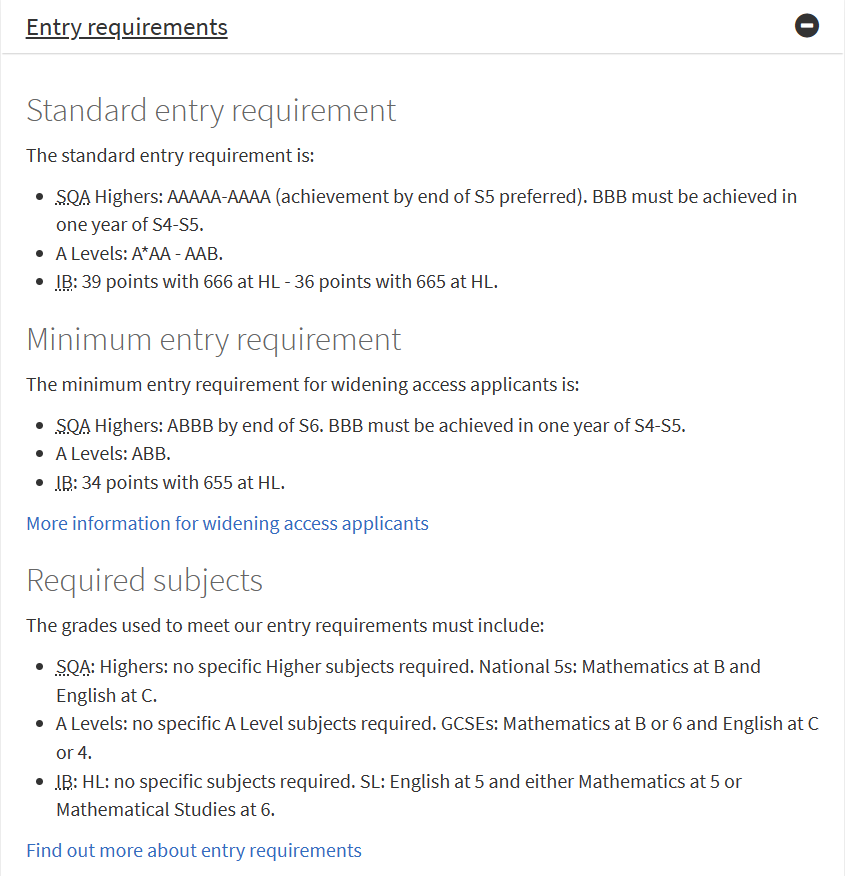
• GCSE: Mathematics at B or 6 and English Language at C or 4
• A-Level: A*AA - AAB
• Suggestions for subject choice: Mathematics, Business Studies or Economics
Entry requirements of degree in Accounting and Finance in the University of Manchester

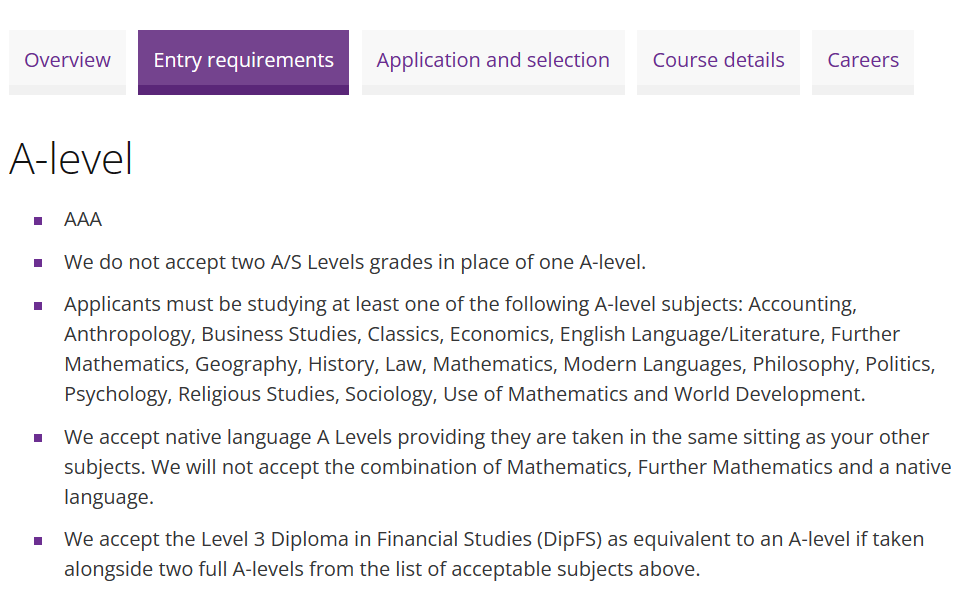
• GCSE: at lease Grade C or 4 in English Language
• A-Level: AAA
• Suggestions for subject choice: at least one of Mathematics, Additional Mathematics, Business Studies or Psychology
Finance
Finance is a very promising major, with individuals, companies, governments and private organisations increasingly relying on finance professionals for effective financial management. Finance can be considered as the most popular major chosen by international students in the UK! Education in finance in the UK is professional and has rich experience. Besides, it is also very carefully categorised and includes as many as twenty specialisms such as finance and accounting, financial economics, banking finance, corporate finance, financial engineering, financial management and even financial modelling. You will learn many concepts and skills related to financial analysis, economics, statistics and portfolio management.

Basic knowledge: social science, mathematics, numerical analysis, computing, critical thinking and reading skills, spirit of research, teamwork.
Core courses: Financial Modelling, Portfolio Management, Law of Business, Calculus, Probability Statistics, etc.
Future development: financial sector of companies, insurance, securities, real estate, financial management of the government, etc. The ambition for many students is to work in an investment bank. The work is generally very intensive and the working hours are long for junior staff. Salaries vary greatly from one workplace to another. Specific positions include financial analysts, investment consultants, financial analysts, etc.
Entry requirements of degree in Statistics, Economics and Finance in University College London (UCL)

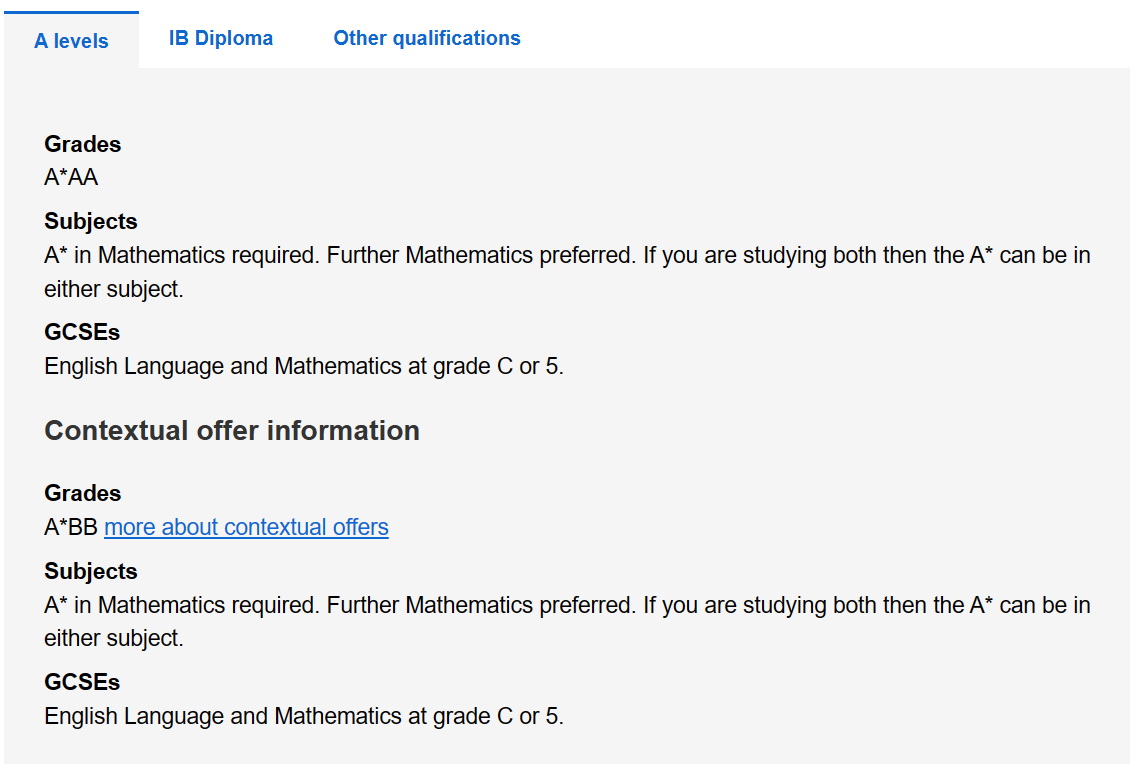

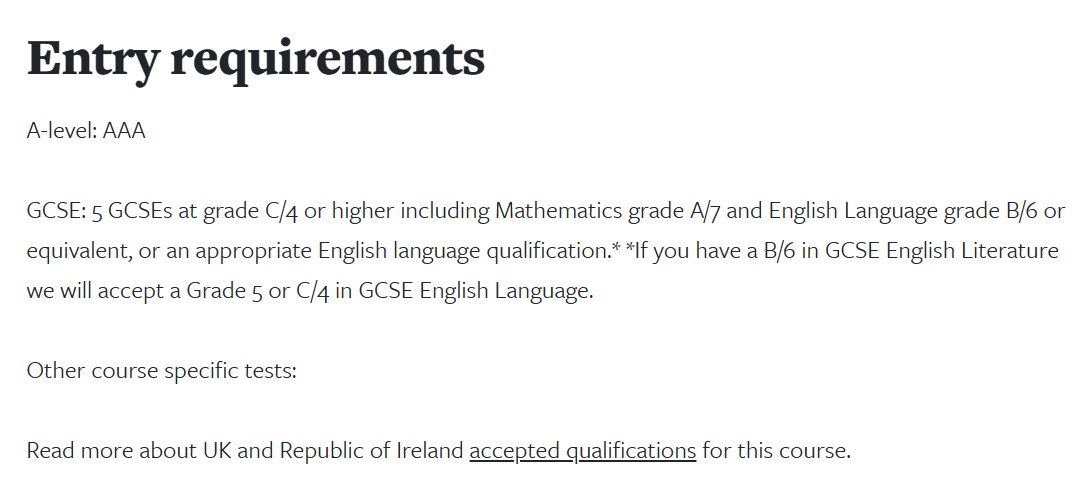
Mathematics Finance
Mathematics Finance is an emerging programme and an important part of “High Technology in Finance”. It is a programme that grasps the intrinsic laws of finance by constructing mathematical models, conducting theoretical analysis and numerical calculations, etc. The mathematical theory of equilibrium and pricing of securities in financial markets is analysed in depth, suitable mathematical models are built, certain computer software is written, theoretical research results are simulated and calculated, econometric analysis of actual data is studied, and more in-depth technical analysis and advice is provided to the actual financial sector.

Basic knowledge: Mathematics, physics, computer programming, excellent mathematical and statistical analysis skills.
Core courses: Calculus, Linear Algebra, Probability Theory, Discrete Mathematics, Statistical Modelling, etc.
Future Development: Mathematics Finance aims to provide the financial industry with professionals who have the ability to analyse finance quantitatively. It focuses on the application of applied mathematics and statistics in the financial system, so that financial workforce in demand for the rapid development of the financial industry can be provided. The core of Mathematics Finance is the study of the theory of optimal selection of investment portfolios and the theory of pricing of assets in an uncertain stochastic environment. There is huge potential for growth in China, while the overall outlook is very positive with the current global shortage of highly qualified financial mathematicians. Specific
positions include data analysts, data analysis managers, financial engineers, software engineers, etc.
Entry requirements of degree in Mathematics with Management & Finance in King′s College London
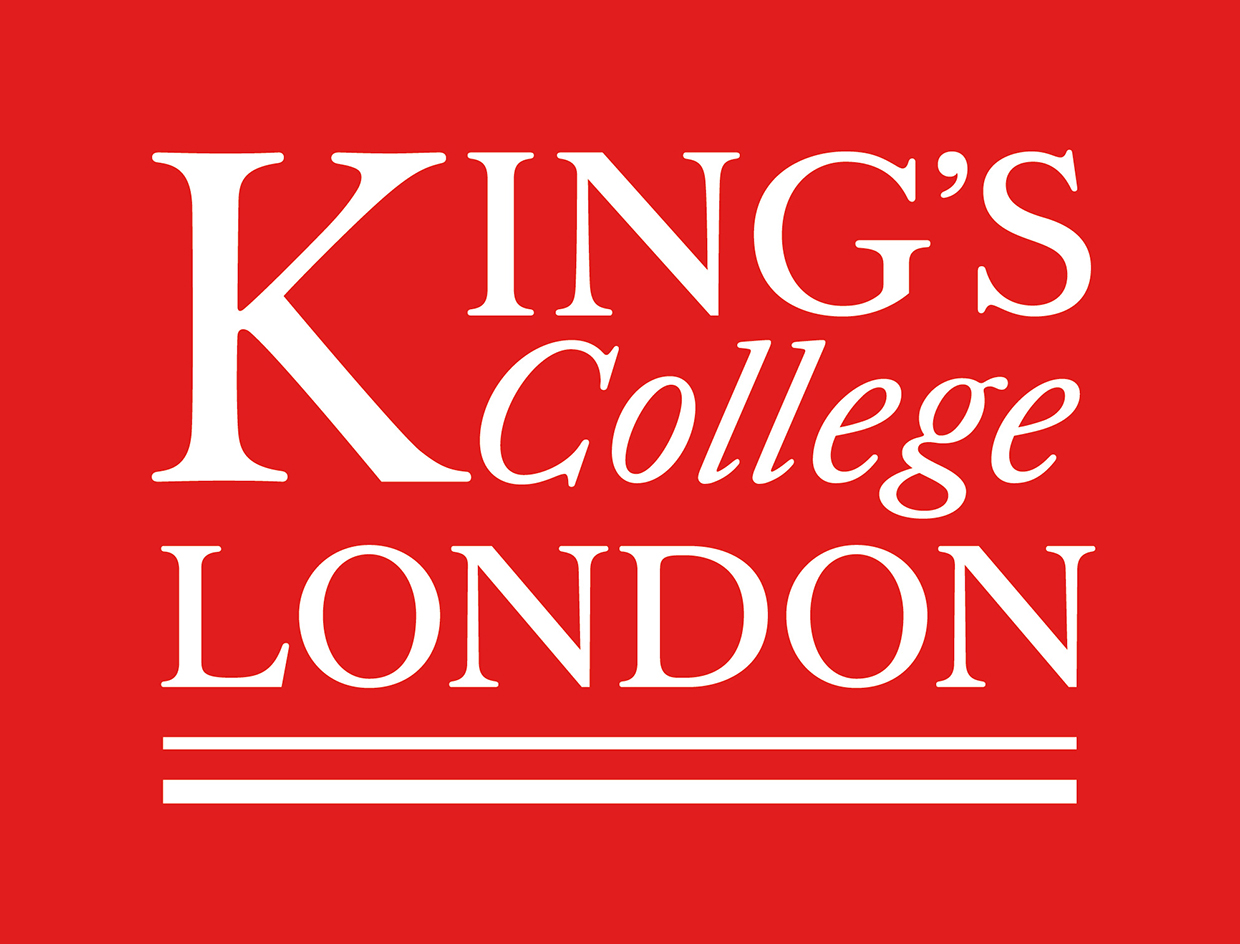
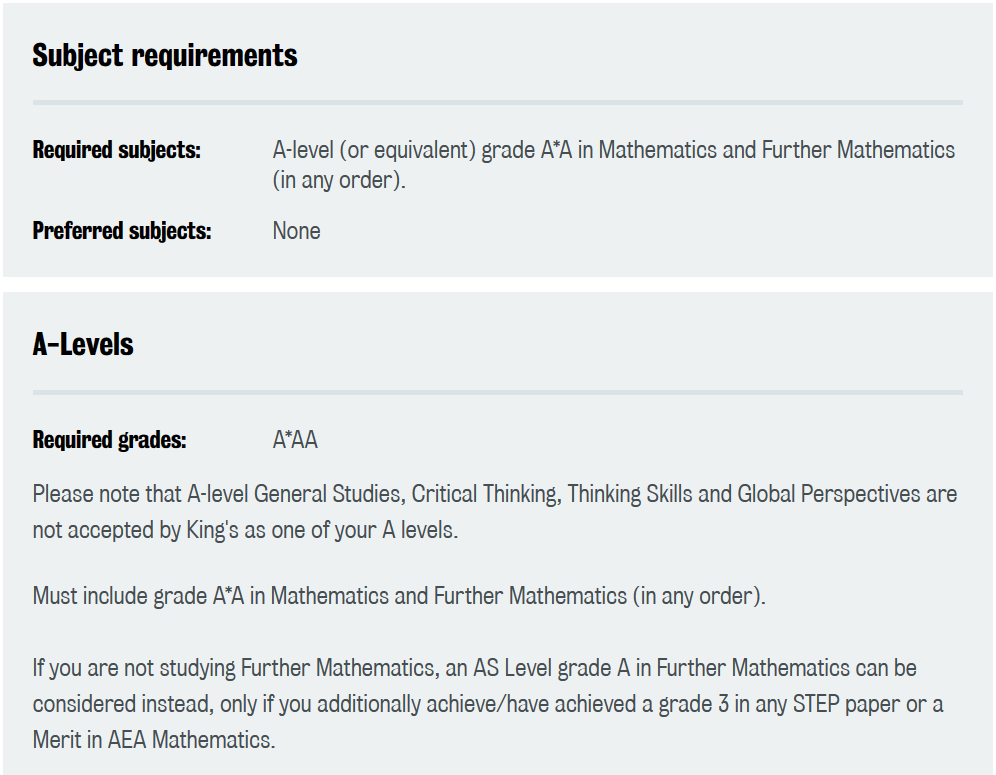
• A-Level: A*AA, grade A* in Mathematics or Additional Mathematics
• Suggestions for subject choice: Additional Mathematics, Mathematics, Computer Science
Credit: Mr. Tom Xu, College Counselor
*数据来源于各大学官网

